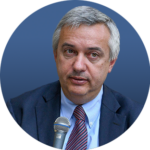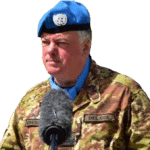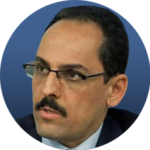MED Panels

Lina Khatib
Principal Analyst, ExTrac, Associate Fellow, Chatham House

Maurizio Molinari
Editor in Chief, La Repubblica

Lorenzo Guerini
Minister of Defence, Italy

James Cleverly
Minister of State for Middle East and North Africa, UK

Stefano Del Col
Former Head of Mission and Force Commander, UN Interim Force in Lebanon (UNIFIL)

Zhai Jun
Special Envoy on the Middle East, China

Ibrahim Kalın
Spokesperson, Presidency of the Republic of Turkey

John R. Allen
President, The Brookings Institution, USA

Andrey Kortunov
Director, Russian International Affairs Council (RIAC), Russian Federation
The end of the NATO mission to Afghanistan has determined a significant turning point in Allied as well as Washington’s political and military engagement in Central Asia and the Middle East. In the aftermath of the 2011 Arab Springs, America refocused its resources and engagement abroad, raising questions about the Country’s future engagement in the MENA region and its role as a security provider. This move caused fallout on the regional balance, allowing for the rise of external and regional actors to gain influence and become more directly involved in conflicts and crises throughout the region. While Russia has played mostly the military card since 2015, China has strengthened its economic presence, becoming a key partner for many Countries in the region. Additionally, the global pandemic further provided both Russia and China with the opportunity to enlarge their clout through the so-called “vaccine diplomacy.”
Overall, a return to diplomacy has gradually emerged across the region. In the context of this global reassessment, as conflict fatigue seems to be prevailing, regional realignments may open new scenarios, including opportunities to defuse tensions and reshape the regional balance with the contribution of both regional and international players.